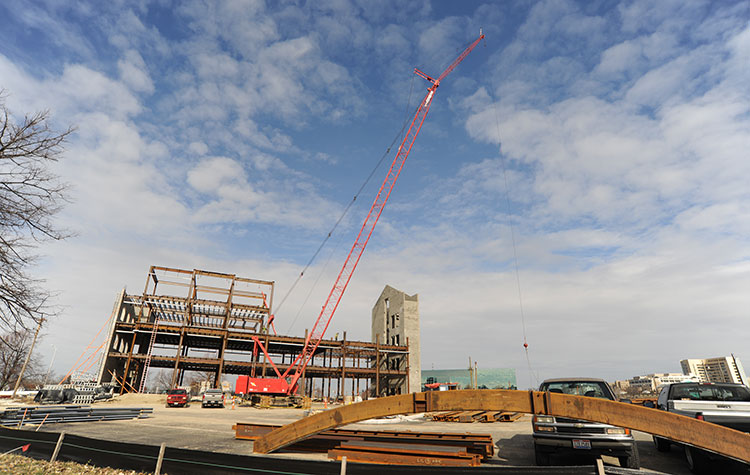Modeling Viscoelastic Behavior of Polyethylene Pipe Stresses
Document Type
Article
Publication Date
4-2014
Publication Source
Journal of Materials in Civil Engineering
Abstract
Polyethylene pipes are commonly used for new and existing pipeline systems. The stresses developed in the polyethylene pipes affect the behavior of other pipe materials in the system to which they are connected. The overall behavior of the pipeline depends on the soil-pipe interaction characteristics; however, understanding and modeling the polyethylene pipe stresses as a first step without the influence of other factors is necessary. Laboratory tests were performed to investigate the time-dependent stress relaxation behavior of polyethylene pipe under mechanical and thermal loading conditions. Analytical methods using convolution integrals and numerical modeling using finite elements were used to model stress relaxation behavior monitored during the tests performed. The results show that the pipe thermal stresses are significantly less than the design stresses typically used by utility companies. In addition, linearly viscoelastic material characterization can be used to predict polyethylene pipe behavior for the range of stresses expected to occur in buried polyethylene pipes exposed to thermal loading. This article presents the test results as well as analytical and numerical results for modeling and predicting stresses in polyethylene pipes.
Inclusive pages
676-683
ISBN/ISSN
0899-1561
Copyright
Copyright © 2014, American Society of Civil Engineers
Publisher
American Society of Civil Engineers
Volume
26
Peer Reviewed
yes
Issue
4
eCommons Citation
Bilgin, Ömer, "Modeling Viscoelastic Behavior of Polyethylene Pipe Stresses" (2014). Civil and Environmental Engineering and Engineering Mechanics Faculty Publications. 57.
https://ecommons.udayton.edu/cee_fac_pub/57
COinS




Comments
Permission documentation is on file.